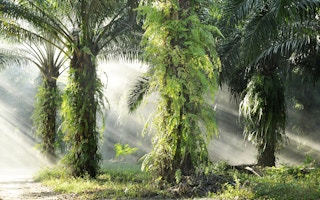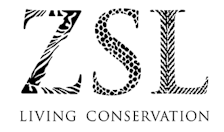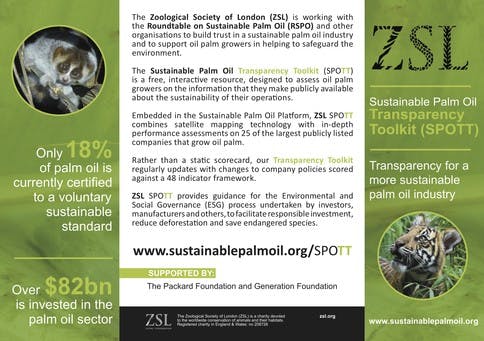The global palm oil industry is set for a shake-up with the launch of a ground-breaking new tool by the Zoological Society of London (ZSL) that will significantly raise the level of transparency in the sector.
The international conservation group recently announced a free online resource called the Sustainable Palm Oil Transparency Toolkit, or SPOTT, which is designed to allow investors and stakeholders in the industry to assess and monitor oil palm growers on the sustainability of their operations.
In an industry first, SPOTT combines satellite mapping technology with in-depth performance assessments on 25 of the largest publicly listed companies that grow oil palm all in one platform.
The global palm oil industry in recent years has come under heavy scrutiny after oil palm plantations were linked to illegal land clearing, habitat destruction, conflicts with indigenous communities, and forest fires which caused the worst haze crisis in Southeast Asia last June.
Some environmental groups have launched public campaigns against major palm oil firms to pressure them into addressing the sustainability of their operations. Greenpeace noted that from 2009 to 2011 alone, around 300,000 hectares of the 1,240,000 hectares of forest lost in Indonesia was due to palm oil concessions.
ZSL, which has been working with oil palm growers since 2001, said that following the launch of SPOTT, it will continue to work with organisations such as the Roundtable on Sustainable Palm Oil (RSPO) to engage companies and rebuild trust in the industry.
ZSL cautioned, however, that there needs to be a clear demonstration by RSPO members that commitments to sustainability are translated into practice, and that those who buy palm oil or are financially linked to palm oil must do more to encourage and support this. SPOTT is intended to help facilitate this, said the NGO.
The RSPO, formed in 2004, is an industry-led association set up to address the sustainability of the industry. It requires members to make their concession boundaries publicly available in digital format on its website.
Speaking to Eco-Business in a recent interview, ZSL transparency project coordinator James Horne highlighted the lack of information in the sector regarding company commitments.
“SPOTT marks a step-change in industry transparency and the monitoring of environmental risk. ZSL will upgrade SPOTT to verify that commitments translate to action on the ground,” he said.
SPOTT uses 48 indicators across seven categories – framed as direct questions about best practice and its disclosure – to assess the companies. These include, for example, whether companies meet RSPO reporting requirements, have full traceability along their supply chains, or have zero burning policies.
Going beyond a static scorecard, SPOTT is an interactive system that updates users on changes to company policies reflected in their assessment scores. The 25 companies each receive a percentage score for every category and a combined score for overall performance. This helps them identify key areas for improvement, and benchmark their progress within the industry.
SPOTT users can also monitor the activities of the companies in relation to key environmental variables by using a Google mapping tool with data layers for company concession site boundaries, protected areas, Indonesian primary forest cover, tree cover loss and NASA active fire alerts. Data on the latter is gathered from the World Resources Institute’s forest-monitoring site, Global Forest Watch.
Launched as part of ZSL’s industry information website, the Sustainable Palm Oil Platform, SPOTT also features a live feed of industry-related headlines, and the Platform has links to over 200 pages of information providing guidance on best practice to all stakeholders in the palm oil supply chain.
Giving his support to ZSL’s effort, RSPO secretary general Darrel Webber said that RSPO appreciates the work of ZSL in providing tools such as SPOTT, “which can help RSPO members move further and faster in their journey towards sustainable development”.
SPOTT’s launch comes as the global palm oil industry is convening in Malaysia’s Kuala Lumpur for the 12th RSPO Roundtable Meeting on Sustainable Palm Oil this week.
Building trust through transparency
Horne explained that a key motivation behind the project was an increasing awareness among global investors and asset managers about the environmental risks associated with investing in oil palm growers with unsustainable or illegal practices.
Financial sector players felt that crucial information to help them assess risks in investing in such commodity-focused firms was not available in a “standardised, accessible, and meaningful format”.
“The indicators in the toolkit serve as questions that can guide the finance sector’s dealings with oil palm growers,” he said.
Agreeing, Ben Ridley, Asia-Pacific regional head of sustainability affairs at Credit Suisse, noted that SPOTT “can be a valuable resource for financial institutions and investors in making informed decisions that support a sustainable palm oil industry”.
Beyond meeting the needs of investors, Horne added that SPOTT aims to build trust between industry players and environmental groups through its emphasis on transparency.
Citing the haze crisis in Southeast Asia last year, he noted how there was much confusion regarding who was responsible for causing and managing the forest fires. In this area, for example, SPOTT can help provide clarity by showing where oil palm concessions are located in relation to active fires, and indicate whether the company at that location is committed to zero burning and fire management.
Transparency over concession maps has been a recurring point of contention between governments, environmental groups, and companies.
An attempt by the Association of Southeast Asian Nations (Asean) to develop a region-wide computer system to monitor hotspots in Indonesia and identify the companies responsible was stymied by the reluctance of some member governments to release company concession maps due to legal concerns.
Chua Chin Wei, deputy director of sustainability at the think tank Singapore Institute for International Affairs, noted that while there are several standards to certify sustainable agriculture, these certifications are not easily traceable.
“To achieve this, companies must disclose their concession maps to the public, and devote resources to tracing each purchased product back to the actual plantation,” he said.
“
ZSL wants to bring clarity on the globally agreed expectations for environmental best practice, and SPOTT should provide guidance to growers on what and how to disclose. It comes back to transparency and identifying what is important to share in order to build trust in sustainable palm oil.
Elizabeth Clarke, ZSL business and biodiversity programme manager
Horne said that out of the 25 companies featured in SPOTT, 40 per cent responded to ZSL’s outreach prior to the launch. Companies were invited to submit concession maps and increase the information they made available in the public domain.
They were also encouraged to go further to make public maps for their smallholders and the locations of mill sites to aid traceability and accountability.
“We hope that more oil palm growers will consider their scores on the toolkit and discuss this with us,” said Horne.
One company that saw its inclusion in SPOTT as an opportunity to showcase its best practices and identify areas of improvement is IOI Loders Croklaan.
Ben Vreeburg, director of sustainability of the Malaysia-headquartered edible fat firm, said that SPOTT “affords all companies clarity on what is expected of them and gives them a chance to report progress on a level playing field”.
However, he voiced a concern that some information that ZSL expected to be made public should only be released to certain stakeholders.
ZSL agreed that there is a need among industry stakeholders to agree and standardise what should be disclosed and to whom. Elizabeth Clarke, ZSL business and biodiversity programme manager, said: “ZSL wants to bring clarity on the globally agreed expectations for environmental best practice, and SPOTT should provide guidance to growers on what and how to disclose. It comes back to transparency and identifying what is important to share in order to build trust in sustainable palm oil.”
A sustainable future for palm oil
Looking forward, ZSL’s James Horne noted that SPOTT could facilitate a step towards a more proactive culture of sustainability reporting within the palm oil industry. To help achieve this, there are plans in the pipeline to increase the scope of the data presented.
This will involve including new information on each company’s smallholder concessions and modifying the 48 indicators to evaluate the quality of information submitted rather than simply the presence of information for each category.
ZSL is looking to add more oil palm growers – listed or private – to future versions of the toolkit. “ZSL intends to raise the bar and standardize the way in which companies around the globe publicly report on their environmental impacts, leading to improved transparency and company environmental performance,” he said.
Clarke added: “SPOTT sets out a new model for monitoring the adherence of industry to best practice that we want to build upon and potentially apply to other industries beyond palm oil. We believe it’s the future if we really want to achieve a sustainable business model that respects and protects our planet.”












